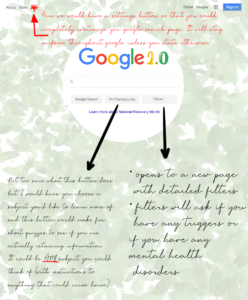Crowdsourcing has been able to connect people from all parts of the internet and it seems to have been mainly a good thing. Like in the article ‘The Rise of Crowdsourcing’ there are photographers who don’t need to apply for a job, they can simply create for other people. For example, if someone wanted a high resolution of a tree, a customer can pay an armature to do it. In a sense, it really benefits both parties as the amature can have a chance to shine and the person paying can pay less than what they would normally pay a professional. personally, I have had a great experience with crowdsourcing. I paid this person to do a custom computer wallpaper and i was very satisfied with it. What this shows is that we are giving people with a niche skill set the opportunity to do what they want for money. Without crowd sourcing, these people would not be doing what they love or would have a harder time trying to make a living. The photographer in the first article said he has noticed he got less money for the photos he was taking. I think it is because there are people who noticed they could pay less for a photo of similar quality but also the fact that there are more people willing to take the job and thus higher demand means they can be paid less.
The only downside I see to this is that this eliminates all sorts of relationships. Lets say i hire someone to build me a web page, if they come into an office every day, there is a sense of a relationship between the web builder and the boss. But if I hire someone through the internet from three hundred miles away, if I don’t need them, I could just tell them they’re fired without giving them a severance package. Like in the third article, the guy name Charles Murray got paid 75 dollars to do a writing. I think it has to do with how with the rise of companies like ‘fiver’ and ‘Upwork’ the NYT was able to have a huge amount of contributing writers; all ranging from good to professional. So since they had access to them, Murrays wasn’t as important to the NYT. If he wanted to leave, the NYT wouldn’t care.
In summary, crowdsourcing opened a lot of people to the opportunity to do what they love without having a reputation, but it has also allowed for larger companies to take advantage of these same people to cut costs wherever they can.

